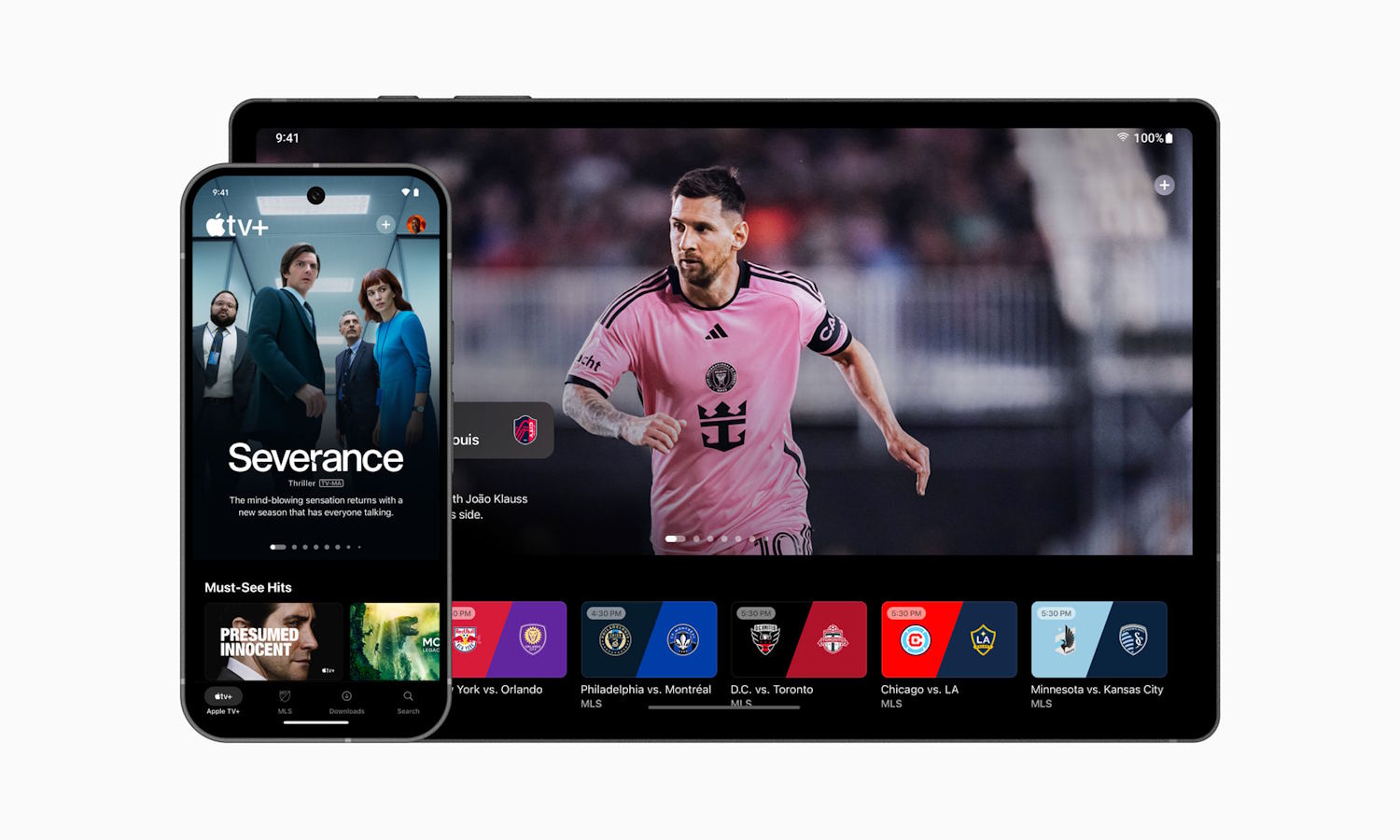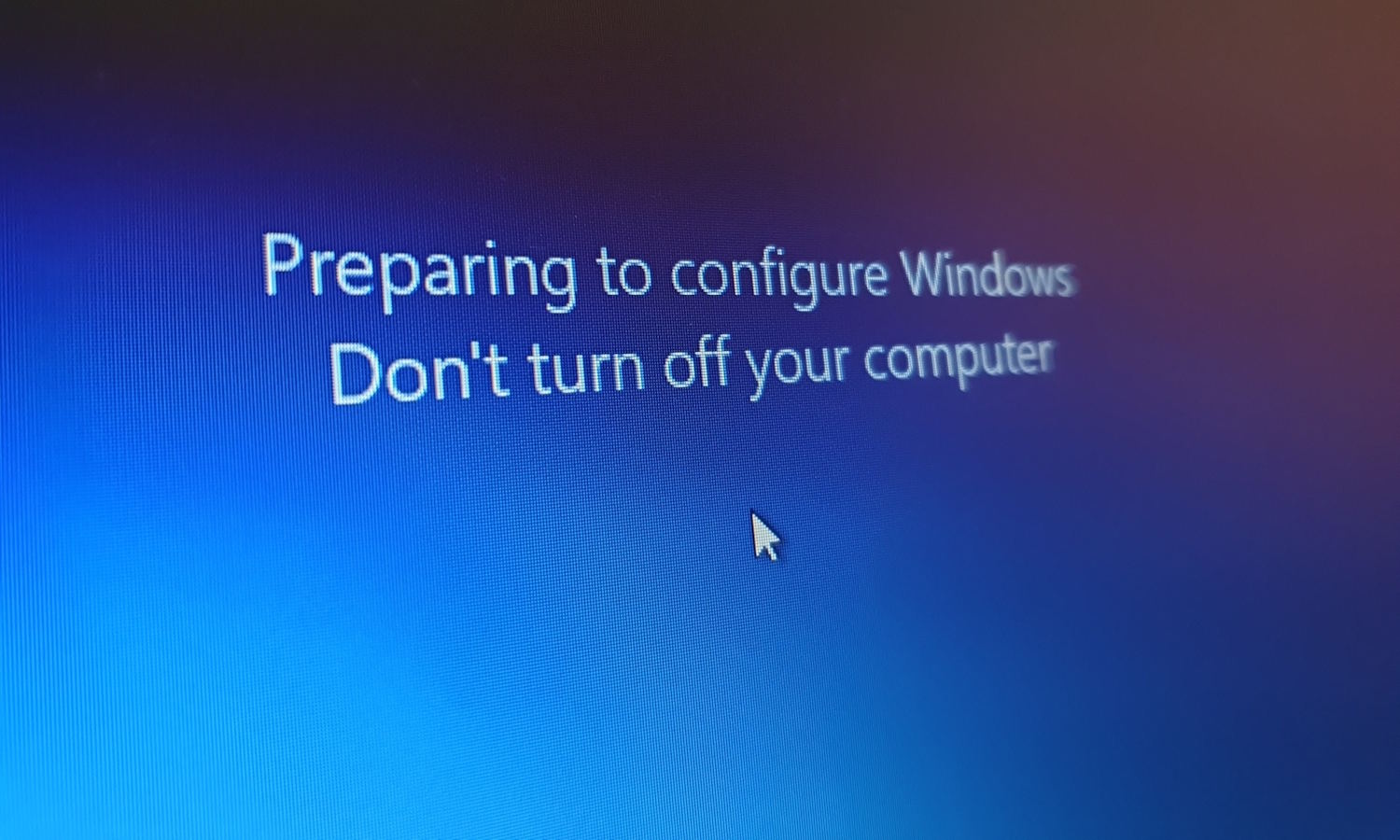
Apple now lets you transfer purchases from one account to another -- Google should be taking notice!
Many people have more than one Apple Account, and it can be frustrating to have to bounce from one to another just to manage digital purchases. If only there was a way to consolidate everything into one account...
Well, now there is! Apple has quietly launched a new option to migrate apps, music, and other purchased content from one Apple Account to another. There are, of course, caveats, and it’s not a feature that is available everywhere, but it is an exciting development that will make Android users jealous.

Apple finally brings the Apple TV app to Android
There is a sensible logic to Apple focusing on creating and improving apps that work on its own devices, but the company sometimes has to acknowledge the fact that not every phone and tablet out there is an idevice.
The latest app release from the iPhone-maker is proof of this in action. After far, far too long overlooking the platform, the company has now released the Apple TV app for Android users. The launch comes ahead of the 2025 season of Major League Soccer, and there is even the option to test drive the service for free.

YouTube TV subscribers may lose CBS, MTV, Nickelodeon, and more as Paramount dispute escalates
Subscribers to YouTube TV might soon be without key Paramount channels such as CBS, MTV, and Nickelodeon. The platform has indicated that current negotiations with Paramount are faltering, and without a new deal by February 13, 2025, these channels could vanish from the service.
The channels endangered in this corporate standoff span a wide array, including BET, CBS Sports Network, Comedy Central, VH1, NewsNation, and the Smithsonian Channel. Moreover, local CBS affiliates in significant markets like New York, Philadelphia, Dallas, and San Francisco are also on the chopping block. This disruption isn’t limited to live programming; DVR recordings from these channels would become unavailable, and add-ons like BET+, Paramount+ with Showtime, and Entertainment Plus would be excised from YouTube TV.

Oreon 10, our favorite Windows replacement, has just been updated -- and it's about to get much, much better!
The biggest problem with saying goodbye to Windows 10 or 11 is knowing what to use instead. macOS is a great choice, but you’ll probably need to buy a Mac to run it, so that makes it an expensive option.
There’s no shortage of Linux distros you can use, including the big ones like Ubuntu and Mint, but they aren’t for everyone. One relatively new choice is the stunning Oreon 10 which we declared had "arrived to replace Microsoft Windows" when it launched last December. That OS has just received a big update, but it’s what’s coming next that has us most excited.

Deepgram launches improved AI-based voice transcription for enterprises
Accurate voice transcription is important for enterprises, whether it's to ensure appropriate responses or create accurate records.
However some situations make this challenging to achieve -- where there are multiple speakers or noisy backgrounds, for example. With the launch today of Nova-3, its most advanced speech-to-text (STT) model to date, Deepgram is looking to offer greater accuracy along with self-service customization to tailor results for industry-specific needs.

Enterprises under growing pressure to demonstrate readiness for cyber threats
A new study commissioned by Immersive Labs shows 96 percent of cyber leaders believe effectively communicating cyber-readiness to senior leadership and boards will be crucial in 2025, driven by regulatory compliance requirements and an increase in attacks.
The survey conducted by Sapio Research reveals that 49 percent of those surveyed report having experienced a cyberattack in the past year.

Planck SSD delivers ultra-fast 2TB portable storage for iPhone, Android, and laptops
In a crowded solid state drive storage market, the all-new Planck SSD stands out by offering a blend of small size and fast performance. Tailored for those requiring dependable and fast external storage, this gadget boasts a storage capacity of up to 2TB with transfer speeds reaching 1050MB/s, ideal for handling large files while on the move.
A really cool feature of the Planck SSD is its ability to record directly onto the SSD, bypassing the limitations of internal storage for capturing high-definition video. It facilitates Apple ProRes 4K recording at 120fps, ensuring videographers and content producers can shoot without worrying about frame drops. The device’s design is both compact and free from cables, enhancing portability, while its broad compatibility with iPhone, Android devices, tablets, and laptops supports versatile work processes.

Regulated industry execs say security detection tech falls short
A new report reveals that 74 percent of IT security directors in regulated industries in the US and UK find detection-based security technologies outdated and inadequate.
The study from Everfox shows more than three-quarters of those polled believe security teams in regulated industries must shift their mindset from detecting threats to preventing them. 62 percent agree that AI and emerging malicious actor trends are increasing attack sophistication.

AI romance scams are exploding on dating apps ahead of Valentine’s Day -- here’s how to avoid getting tricked
Valentine’s Day should be a time for love, but sadly, these days it is also an opportunity for digital tricksters to pull scams. Recent insights from McAfee shows that AI bots, celebrity impostors, and misleading dating apps are on the rise, complicating the quest for true love online.
Dating apps are super popular nowadays, with over 60 percent of folks using them or social media to find love. If you’re in the 18-24 demographic, you’re likely swiping through Tinder, Snapchat, or TikTok in search of a connection. But be warned, scammers are using AI to spin convincing tales of romance.

Ensuring transparency when deploying AI [Q&A]
There are many factors to consider when deploying AI into an organization, not least of which is maintaining transparency and trust in the process.
We spoke to Iccha Sethi, VP of engineering at Vanta, to learn more about why transparency is so important and how governments and enterprises are responding to this challenge.

Apple is renaming the Gulf of Mexico in Apple Maps… and is going further than Google
Shortly after Google Maps changed the name of the Gulf of Mexico to the Gulf of America, Apple Maps is starting to do the same.
When Google rolled out the name change at the weekend, the company took a three-pronged approach which means three different naming conventions are used in different parts of the world. Having started to implement the name change itself, Apple is showing that it is willing to do more than Google by making the change global.

Microsoft is forcing the new Outlook for Windows app on Windows 10 users with the mandatory KB5051974 update
Windows 10 may not have long left to live (officially, at least), but this does not seem to be stopping Microsoft from using the operating system to piss people off. There are still a few months of updates for Windows 10, and the most recent is the cumulative KB5051974 update.
In addition to one of the last batch of security fixes Windows 10 users can expect, the KB5051974 update sees Microsoft doing -- once again -- that thing which wins it few friends: forcibly installing apps. This time around it is the new Outlook for Windows app that’s been force-fed to users.

MIXX Analog System 5 is a Bluetooth turntable with wireless speakers
Today, MIXX launches the Analog System 5 which blends classic vinyl play with the flexibility of wireless audio. This setup is crafted for audiophiles seeking the rich sound of records with the ease of modern technology.
The system features an Audio-Technica AT3600L moving magnet cartridge mounted on an aluminum tonearm, ensuring precise tracking and crisp audio playback. It accommodates both 33 and 45 RPM records, with pitch control for those who enjoy tweaking their tunes. Its belt-drive system minimizes motor noise, ensuring an enjoyable spinning experience.

Google I/O 2025 is set for May 20-21, 2025 -- here’s what to expect
Mark your calendars, fellow tech fans! Google I/O 2025 is happening on May 20-21 at Shoreline Amphitheatre in Mountain View, California. Can’t make it in person? No worries, you can join in the fun online at io.google -- registration is open now.
This is Google’s biggest bash for developers, where the search giant will show off all the cool new stuff in tech, software, and AI. The event will surely offer some big announcements -- think new gadgets and software updates. After that, there’s a whole bunch of workshops, sessions, and meet-ups for everyone to get hands-on and network.

Microsoft and Apple should take a long hard look at Elon Musk’s ‘Big Balls’
Elon Musk has a reputation for rewriting the rules, and his latest venture at the helm of the Department of Government Efficiency (DOGE) is no exception. He’s brought on a 19-year-old known as "Big Balls" to help overhaul how the government operates, causing quite the stir, not only because of the nickname, but because of his young age.
"Big Balls" isn't just a provocative moniker regarding large testicles, however. Actually, this name more likely embodies courage, bold decision-making, and a defiance against conventional challenges. These are the traits that fuel breakthroughs, and let's face it -- big tech could benefit from infusing some of that spirit into their operations.
